International Leadership Mission to Germany: Lessons for Greater Seattle’s Future
In June 2025, Greater Seattle Partners and the Seattle Metro Chamber of Commerce led a delegation of more than 50 regional leaders on the International Leadership Mission to Germany. This long-standing partnership between GSP and the Chamber brings business, government, and community leaders together to study how other regions address challenges, seize opportunities, and strengthen their economies.
“We build lasting relationships – relationships within our regional delegation, and with the folks we visit. And these relationships at home and abroad position us to be more effective in our work,” said Rachel Smith, President & CEO of the Seattle Metro Chamber.
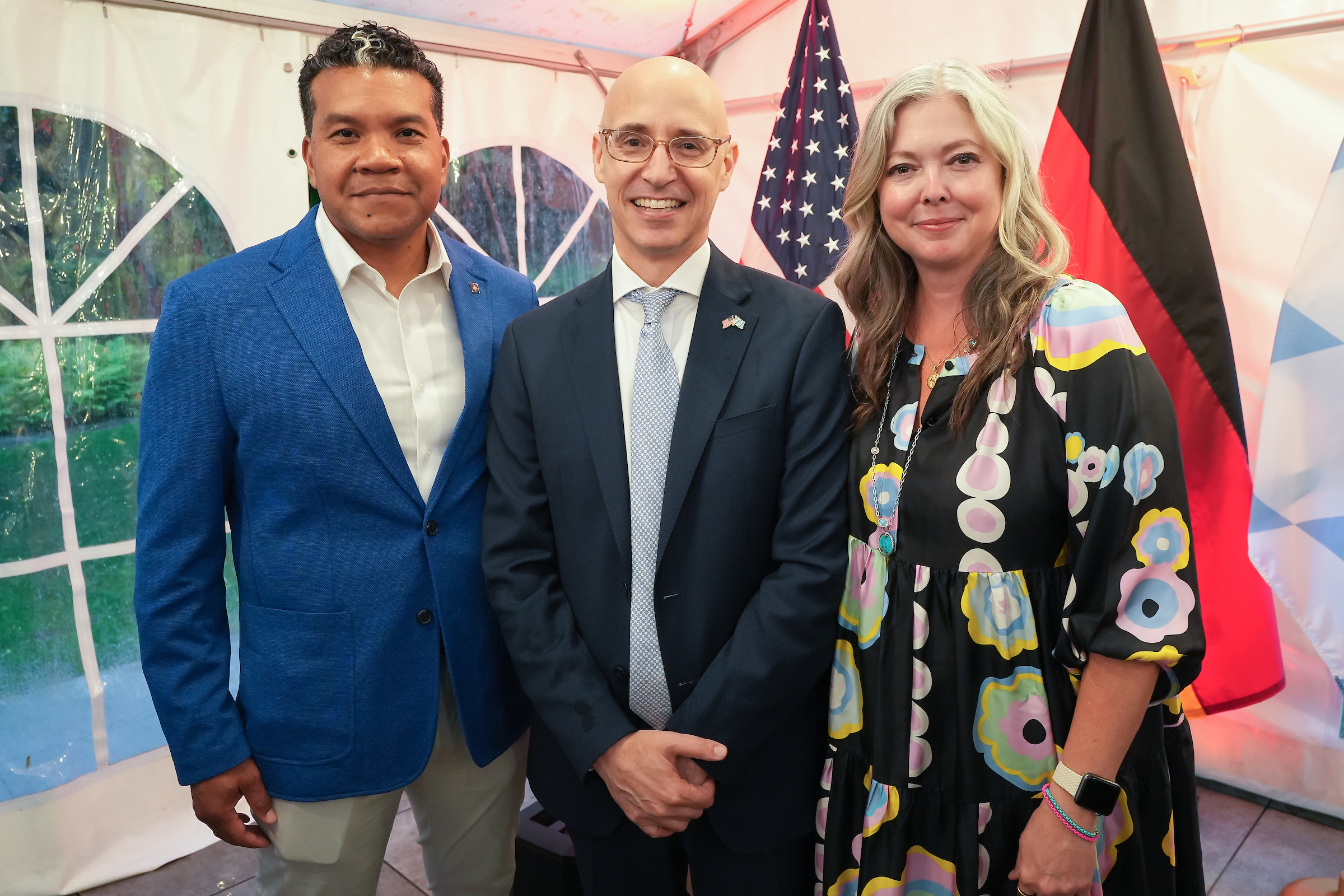
Pictured: Brian Surratt, President and CEO at GSP, U.S. Consul General James Miller, Rachel Smith, President and CEO at Seattle Metro Chamber of Commerce
The 2025 mission explored Munich, Berlin, and Hamburg , three dynamic German cities, and focused on green economy strategies, advanced technology and aeronautics, and preparations for hosting global events such as the FIFA World Cup. Throughout the trip, delegates noted how Germany’s regulatory environment, while fostering trust and equity, can also create challenges for startups and innovation, offering valuable perspective for Seattle’s own policy discussions.

Below are key takeaways from each city and how they can inform our regional development.
Munich: Collaboration on Innovation and Land Use
In Munich, the U.S. Consulate hosted a reception where over 50 Bavarian companies and organizations engaged with our delegation, demonstrating strong interest in partnering with innovative U.S. regions. Specifically forward-thinking regions like Seattle – even during the challenging geopolitical times including tariffs and heated rhetoric. We were recognized as a region where “Uncommon Thinkers” are welcome. The leadership exhibited by GSP, the Seattle Chamber, and our corporate and public-sector partners was evident.

We learned that our pinnacle industries are well-aligned with those in Germany and cutting-edge technologies are being developed in distinct ways such as in Fusion technology. Germany is using one model, and the Seattle region is using another. It is a kind of race to see who achieves market-viable technologies for producing electricity for the grid. Likewise, land use challenges for airports were compared with some innovative strategies outlined by Munich airport. Those were noted by airport leadership to take back as part of our regional discussion on airport land use.
Speakers included:
- Prof. Gerhard Müller and Prof. Gerhard Kramer, Technical University of Munich
- Axel Kaltwasser, BMW
- Dr. Schweinzer, Max Planck Institute for Plasma Physics
- Nicole Fischbeck, Munich Airport International
Delegates also toured UnternehmerTUM Co-Lab, a hub for startup innovation.
Berlin: Addressing Urban Challenges and Trust in Technology
Berlin’s sessions focused on urban issues, such as affordable housing, homelessness, gender equity, and making cities welcoming to international residents and companies. All highly relevant to Greater Seattle’s priorities.
At the U.S. Embassy, Deputy Chief of Mission Alan Melzer and senior commercial officers briefed the delegation on Germany’s economic climate. Microsoft Berlin hosted a conversation about “Trust in Technology,” exploring how Europe approaches AI governance, an important perspective as Seattle continues to lead in AI innovation.
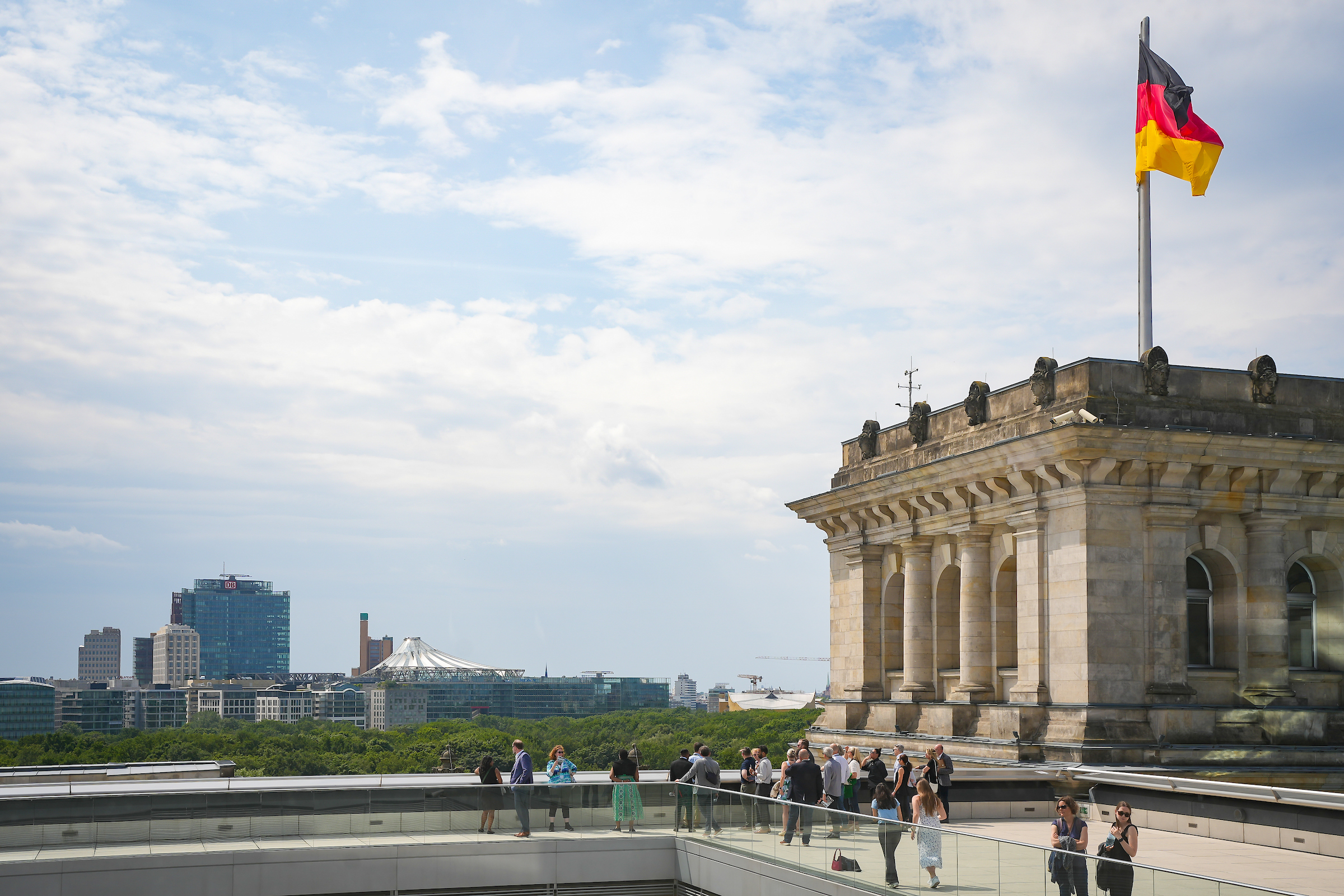
Speakers included:
- Florian Hauer, Senate Department for International Relations
- Markus Facklam, Berlin Partner
- Alan Melzer and Bill Czajkowski, U.S. Embassy
- Leaders from Microsoft Germany and Deutsche Telekom
Delegates also visited the Bundestag and Berlin’s historic Red City Hall for deeper insights into governance and urban planning.
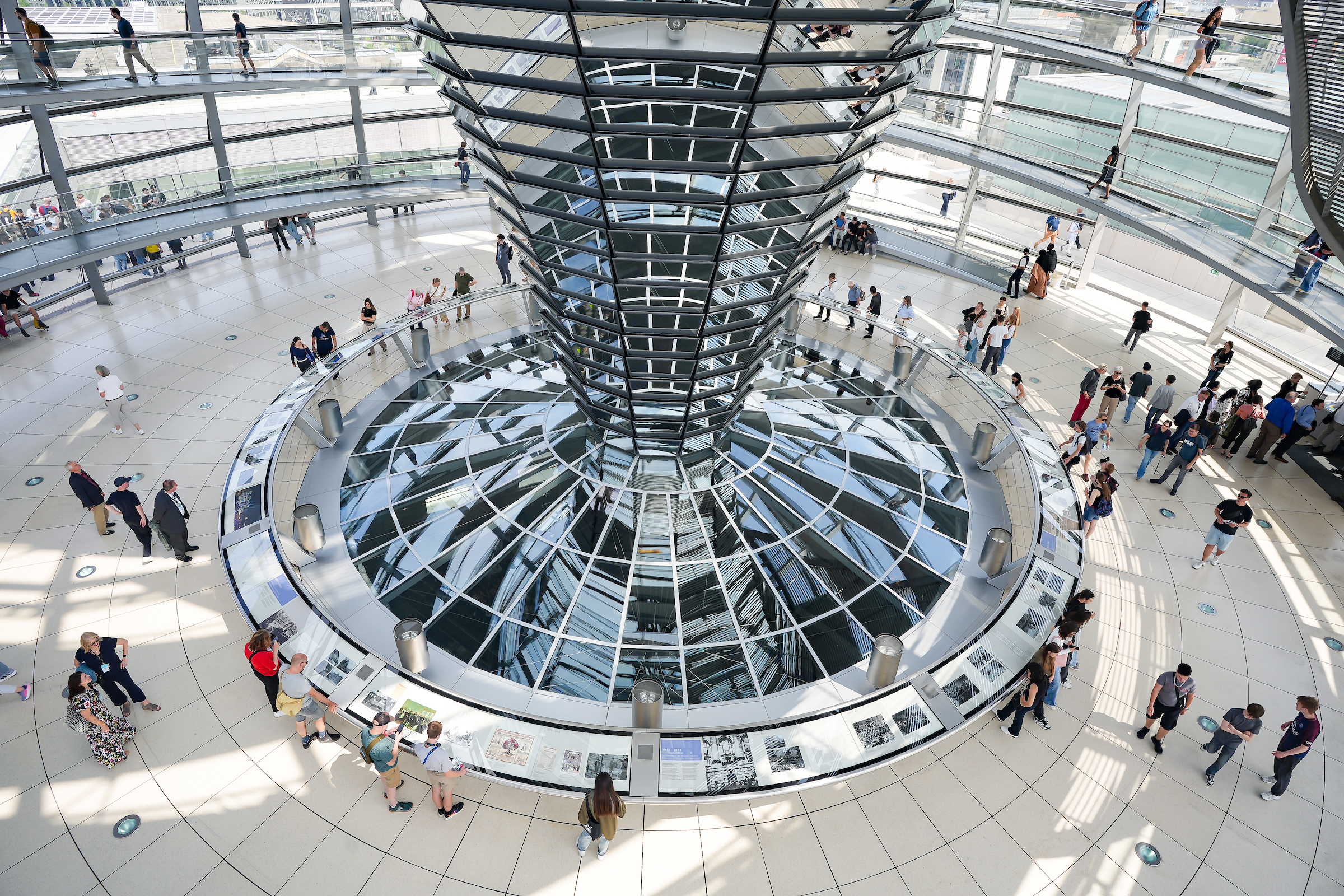
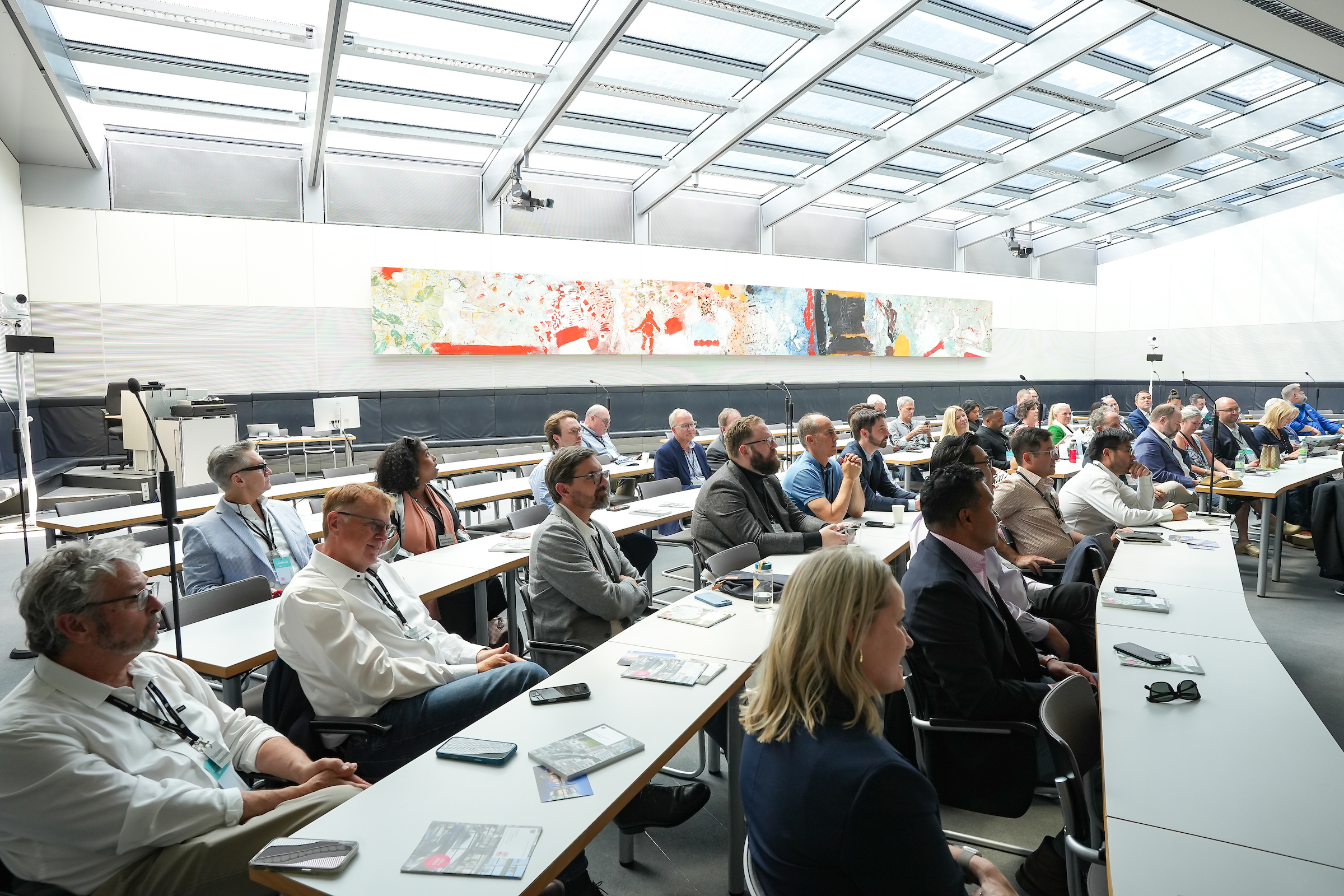
Hamburg: Showcasing the Port, Green Economy, and World Cup Readiness
Hamburg offered compelling examples of how a port city can integrate land-use planning, sustainability, and global events. Delegates learned how Hamburg’s creative marketing and infrastructure planning for the FIFA World Cup could inspire Seattle’s own hosting efforts in 2026. Creative strategies like using containers painted with country flags hoisted by cranes to show which teams are advancing was loved by delegates.
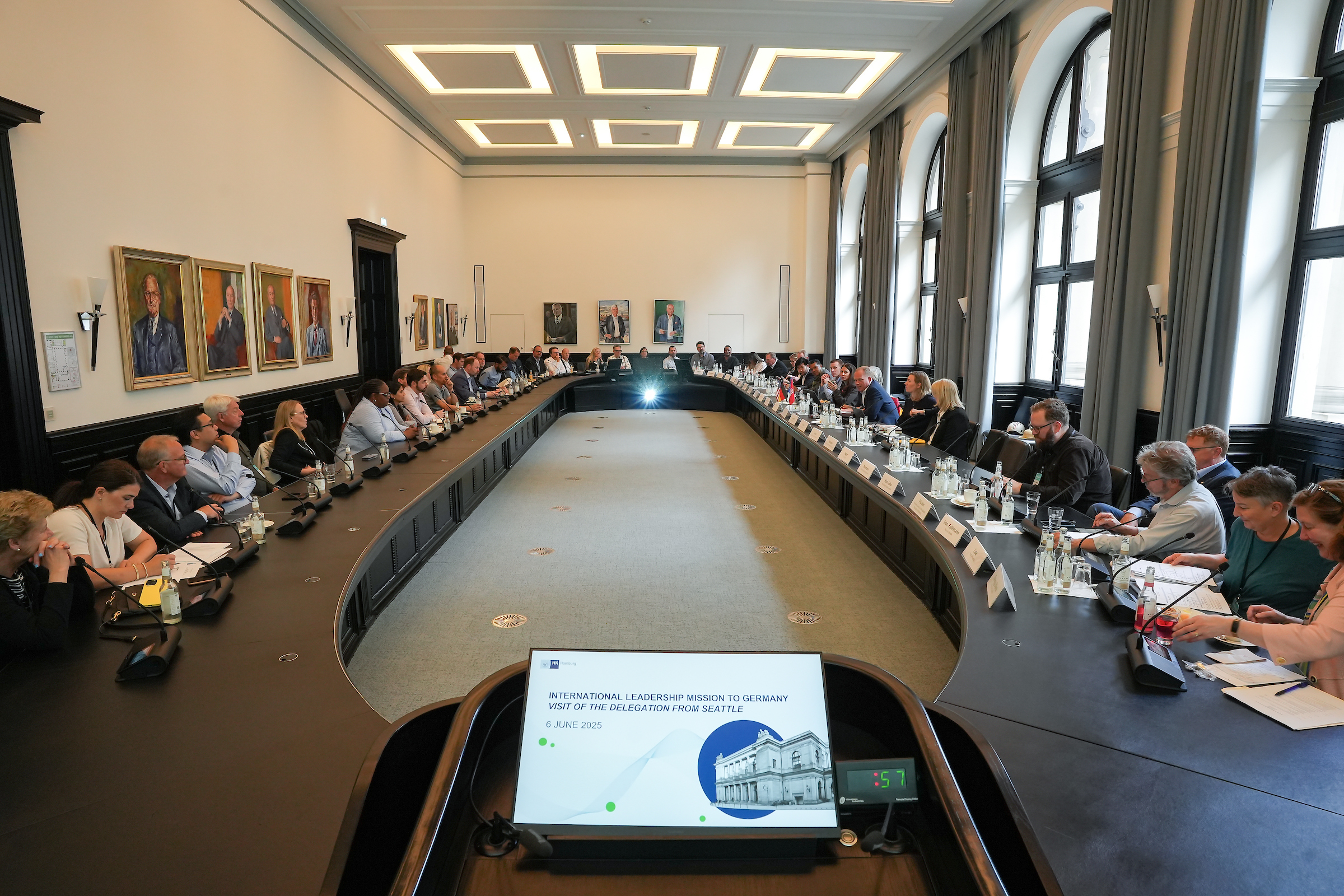
We had a full tour of the Port which highlighted land use by Hamburg. This informed the delegation of smart land use strategies to attract the green economy to the Seattle region.
At the ZAL Center of Applied Aeronautical Research, leaders shared how workforce development and innovation drive their aerospace ecosystem, lessons equally applicable to Greater Seattle.
Speakers included:
- Jens Meier and Daniel Jahn, Hamburg Port Authority
- Christoph Holstein, Hamburg Ministry of Sports
- Roland Gerhards and Lukas Kästner, ZAL
- Philip Koch and Dr. Doris Hillger, Hamburg Chamber of Commerce
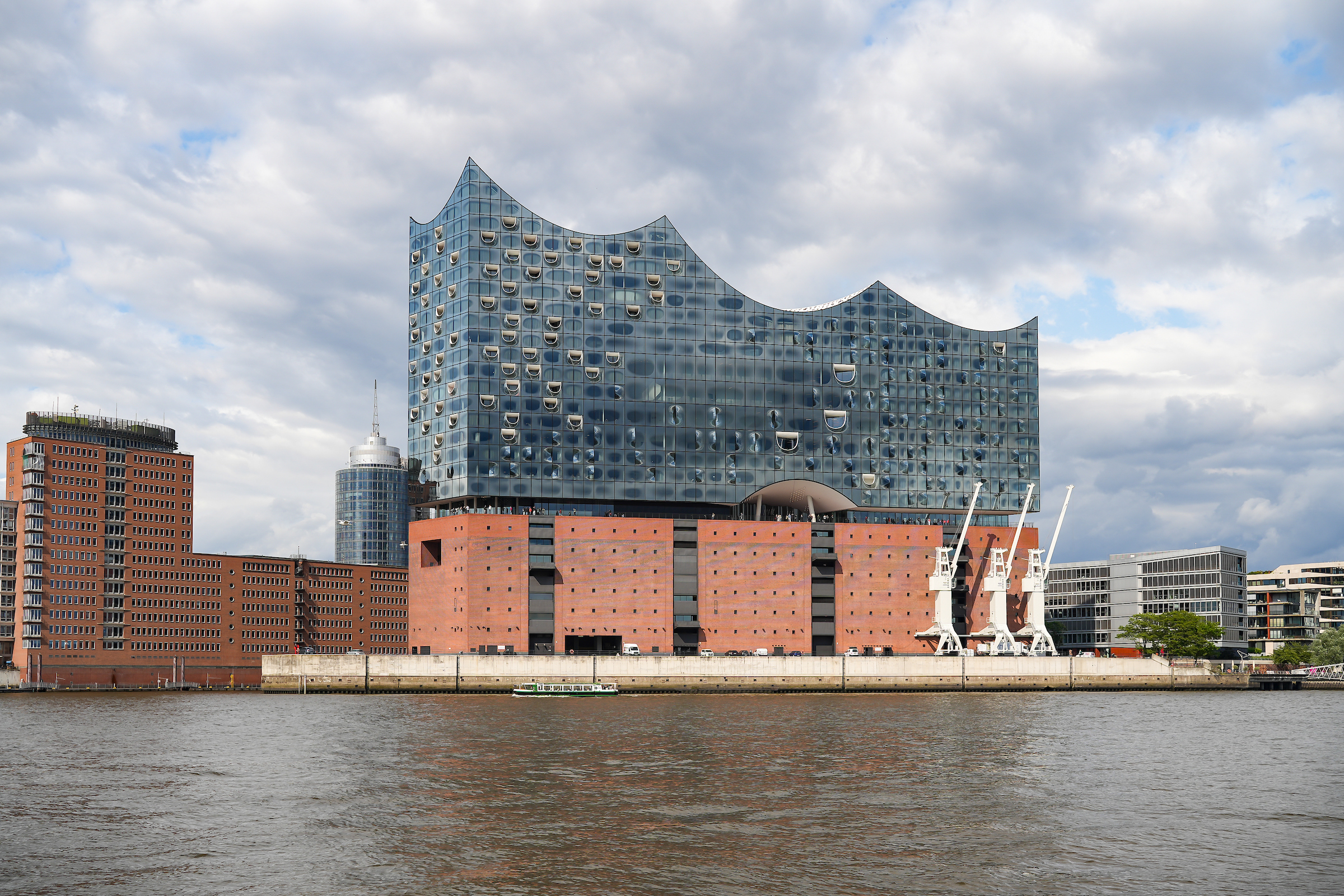
Looking Ahead: India 2026 Leadership Mission
Building on the success of Germany, Greater Seattle Partners and the Seattle Metro Chamber are already planning the next International Leadership Mission to India, scheduled for February 2026. Focus industries will include aerospace, ICT, technology, AI, life sciences, and maritime.
This year’s mission reaffirmed the value of building global relationships and learning from other regions’ successes and challenges. Through the strong partnership between GSP and the Seattle Metro Chamber, Greater Seattle is better equipped to address our own economic priorities and remain a welcoming home for “Uncommon Thinkers.”
For more information on the International Leadership Mission or how to get involved, contact us at Greater Seattle Partners.
Photography credit: Alabastro Photography
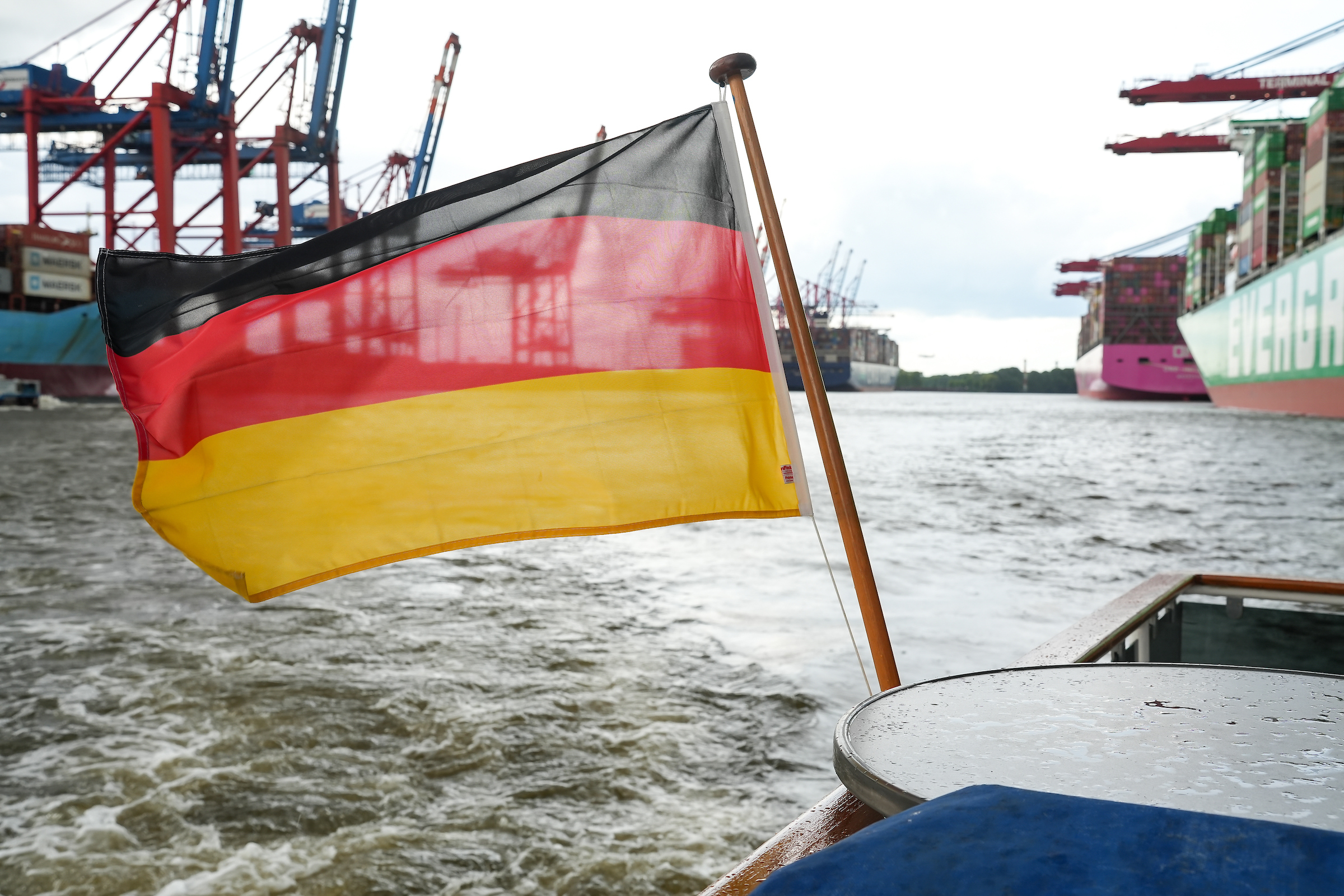
Ready to take advantage of everything Greater Seattle has to offer?
